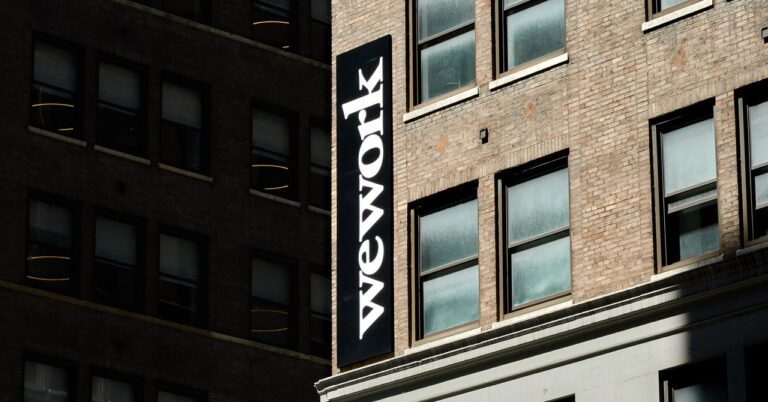WeWork has submitted an utility for chapter. The transfer comes as the corporate is underneath stress from mounting debt, excessive rates of interest and an rising variety of folks working from house.
WeWork has filed for Chapter 11 safety, the corporate introduced Monday night. This course of permits an organization to proceed functioning whereas it reorganizes. WeWork areas typically stay open, the corporate says, and the lawsuit solely impacts areas within the U.S. and Canada, because it additionally plans to use for related protections there.
However as a part of the submitting, WeWork is asking to depart leases in place at some areas that it says are “largely non-operational.”
“Now’s the time for us to maneuver ahead by aggressively addressing our legacy leases and dramatically enhancing our steadiness sheet,” WeWork CEO David Tolley stated in asserting the chapter submitting.
It is the continuation of an epic fall for the once-hyped coworking firm. In 2019, the corporate, with a lofty valuation of $47 billion, tried to go public however failed earlier than ousting its eccentric founder and CEO Adam Neumann. In 2021, WeWork went public after a restructuring. Now WeWork has a market cap of about $45 million.
Whilst WeWork shaped itself and introduced in additional skilled leaders, it confronted huge shifts in the actual property market. The Covid-19 pandemic has emptied workplaces worldwide and demand for working from house has elevated since then. Now costly workplaces within the as soon as bustling metropolis heart are empty. Dylan Burzinski, an analyst at actual property consultancy Inexperienced Road and head of workplace sector analysis, says such fast adjustments are hitting WeWork arduous. The corporate is struggling to compete with low cost workplace area as rates of interest rise, including much more threat.
And 2023 has confirmed to be one other tumultuous 12 months for WeWork. CEO Sandeep Mathrani left the corporate in Might and joined in 2020. In August it issued a continuity warning, a transfer that raised doubts about its future survival. WeWork then did not make required curiosity funds in early October.
In a September letter, Tolley wrote that the corporate was within the means of “renegotiating practically all of our leases” and would shut underperforming areas. Tolley stated the corporate’s leases accounted for two-thirds of its whole working bills within the second quarter of 2023 and are “inflated and dramatically out of step with present market circumstances.” However Tolley was optimistic on the time: “Let me finish by making one factor clear: WeWork is right here to remain.”

